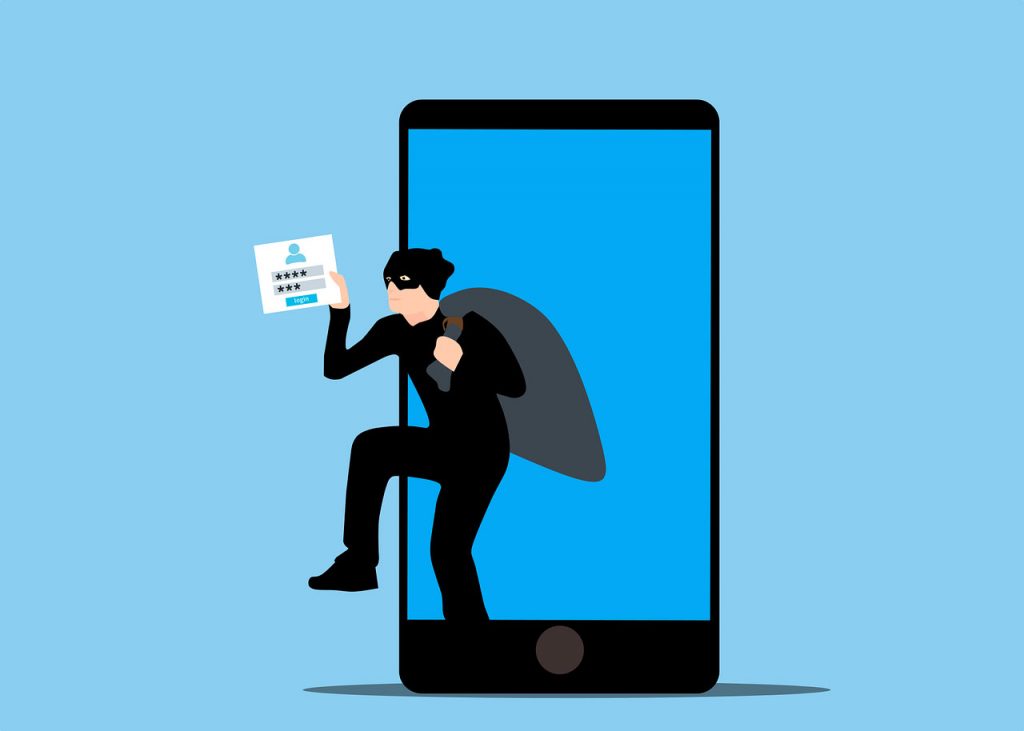
Firstly, just about everything in Cyber-World is a potential threat to your network, but the devices used by your remote workforce are the weakest links in your hardware. Your employees that access your office network from a smartphone or tablet are more vulnerable than a home laptop or desktop computer, making them prime targets for cybercriminals.
Mobile malware is often overlooked, even by some IT services crews. When we at IT Support LA conduct aa ‘Discovery’ meeting with prospective clients, it’s not unusual to find unprotected remote devices used for business. People focus on securing their laptops or desktops. But they don’t pay as close attention to cybersecurity for smartphone, tablet or even home-office computers.
In 2023, attacks on mobile devices increased by 50% over the prior year.
Do not think for a moment that hackers have overlooked your company’s mobile devices – they are often the path of least resistance. They set many traps to get users to infect their devices with malware. Let’s look at the most common mobile malware traps and tell you how to avoid them.
Prevalent Mobile Malware Traps
Just like its computer counterpart, mobile malware is malicious software designed to harm your device or steal your data. It can arrive in various forms, from sneaky apps to deceptive links. Ignorance is not bliss here. Understanding the common traps is your first line of defense.
Phishing Attacks: Year after year, this is the most common attack tactic. You receive a text or email appearing legitimate, often mimicking trusted brands. Clicking links or downloading attachments can lead to malware infection.
Wi-Fi Risks: We will always nag you about using public Wi-Fi networks, because they are often unsecured. Connecting to them without caution can expose your device to hackers. Avoid accessing sensitive information on public Wi-Fi.
You want to do your online banking while sipping a latte at Starbucks? If you don’t have at least a VPN (Virtual Personal Network) in place, then you may be kissing your money goodbye.
Apps Containing Malware: New apps are not necessarily safe. Some apps contain hidden malware that can steal data, display ads, or even control your device. Always research apps before downloading.
SMS Scams: This is just phishing with texting, and these SMS scams, or smishing, use text messages to trick you. They lure you into clicking links or sharing personal information. Be wary of unexpected messages, especially those asking for sensitive info.
Phony Apps: These mimic or ‘spoof’ popular apps but are actually malware in disguise. They can steal your login credentials, financial information, or even control your device. Always verify app authenticity.
Adware: This more of an annoyance than a direct threat, BUT it can also potentially expose you to other threats. It often comes bundled with other apps.
Essential Tips for Protecting Yourself
Continuous Updating: Make sure your devices’ operating systems and apps are updated. Install the latest security patches or turn on auto-update.
Suspect All Links and Attachments: Clicking blindly on links or downloading attachments – especially from unknown senders is the #1-way malware infects systems.
Create Stronger Passwords: Complex passwords for your remote devices and all your apps are first-line defenses. Refer to the tips we supply in our page on this site our page on this site ‘Creating Strong Passwords’ on this site, and consider using a password manager.
Download Only from Safe App Stores: Stick with official app stores like Google Play or the Apple App Store for your downloads and read reviews and check permissions before installing.
Public Wi-Fi is Dangerous! Always, always use a VPN to encrypt your data when connecting to public Wi-Fi.
Backup Your Data Regularly: Back up the data on your devices regularly to protect your data from loss or corruption. Use these backup destinations:
Local Backups: Consider backing up your phone to your computer and your computer to reliable office backups. This is another added layer of protection.
Cloud Backups: Use cloud storage services to back up your data regularly. This ensures you have a copy of your important files even if your phone is lost, stolen, or damaged.
Security Software: Consider using a reputable mobile security app for added protection.
Extra Steps to Safeguard Your Remote Devices
Here are a few more layers of protection you can use to fortify your defenses.
Address Physical Security
Lock Your Devices: Always set a strong passcode, fingerprint, or facial recognition lock. Avoid simple patterns that can be easily guessed.
Public Charging is a Minefield: Avoid using public USB charging stations. These can be compromised, allowing hackers to access your device.
When Your Device is Lost or Stolen: Immediately remotely wipe data from any stolen device. This protects your sensitive information.
Limit Your App Permissions: When installing apps, carefully review the requested permissions. Deny unnecessary permissions to safeguard your privacy and data. For instance, a flashlight app doesn't need access to your contacts.
Audit Your Apps Regularly: Periodically review the apps on your phone. Uninstall apps you no longer use to reduce potential vulnerabilities.
Take Control of Your Digital Life
If you follow these tips, you can significantly enhance your smartphone's security. Remember, an ounce of prevention is worth a pound of cure. Stay vigilant, informed, and proactive in protecting your digital life.
Your smartphone and other remote devices are powerful tools, but they are also potential targets for cybercriminals. By understanding the threats and taking proactive steps, you can prevent catastrophe. Enjoy the benefits of mobile technology without compromising your (or your company's) security!
Frequently Asked Questions
What is an example of a strong password?
Try copying the methodology used in creating this password, which we use as an example on our ‘Creating Strong Passwords’ page:
ImMLw0&23o&i5Mc
This password is based on the phrase “I married my loving wife (or husband) on August 23 08 in Santa Monica California” – using symbols as substitutes for numbers and letters, and vice versa – such as using $ for S or & for 8 and alternating between upper and lower case letters.
Running the password above through ‘Password Monster’ shows the ‘time to crack password: 9 Trillion Years,’ whereas ‘123456’ takes ZERO seconds.
How do I manage too many passwords?
As we mentioned above, consider using a Password Manager, because juggling dozens of passwords is a pain. Every time you enter a password for the first time, it will give a prompt asking if you want saved (say yes). Then, when you return to that login page, it will offer to fill it in for you. This way, you can enjoy complex passwords, and you only need to remember ONE: the one for the Password Manager.
Wired online offers a ‘Best Password Managers’ list to give you some ideas.
What is the downside of using password manager?
When you put all your eggs in one basket, don’t lose the basket! If you lose your master password or other identifying information, you could lose access to all of their passwords at once. Likewise, if your master password fell into the wrong hands, it would allow a bad actor to access any account saved in the password manager.
Password manager programs are a target for hackers. It's not easy to login using multiple devices. If the main password is used/typed/saved on a computer with malware, your main password can compromise all your other passwords controlled by the PM - all your passwords are only as secure as your master password.
How does automated patching work?
Patch automation tools perform regular scans of an environment—or specific groups of devices—to identify which are missing patches. They can then download missing patches from individual vendors, such as Adobe, Apple, Java, or Windows.
How secure is your network?
As a reputable member of the IT Support Los Angeles community since 2002, IT Support LA offers a FREE, no-risk network and security assessment. It is a non-intrusive scan that allows us to deliver a comprehensive report that is yours to keep. No strings, and no obligation to ever use our Managed IT Services.
The best defenses are expert network security to protect your data from theft, and a top-notch Managed Services Provider (MSP) to ensure continued reliability and defenses against newly emerging threats.
With our 100% Money Back Guarantee in writing, we offer a risk-free way for prospective clients to try us out. Because we do not require a ‘hard’ contract, our clients can fire us at any time with 30 days’ notice. We have to be good.
Among the Managed IT services we provide:
IT HelpDesk Service
Onsite IT Support
Cybersecurity
Cloud migration and management
Email migration services
Backup and disaster recovery
VoIP phone systems
IT disposition and recycling
Office moves
White label services (IT to IT)
IT Support LA is an award-winning Managed Services Provider (MSP):
o 3 Years awarded Best IT by the Small Business Expo
o Awarded 2nd best company of any type in the US by the Small Business Expo SB100
o Awarded Best IT Support in California by Channel Futures
o Winner of Best IT in Los Angeles by Channel Futures
o Listed as one of the world’s Top 501 Managed Services Providers by CRN and in the top 250 in the ‘Pioneer’ listing
o 4 years listed as one of the Top 501 Managed Services Providers in the World by Channel Futures
o Listed as #21 Managed Services Providers in the World in Channel Futures NextGen 101
o Globee 2021 Bronze Award winner for Chief Technology Officer of the Year
o Globee 2022 Gold Award winner for Chief Technology Officer of the Year
o Named one of 2022’s 50 ‘Best’ businesses in California by UpCity
o Named Best of IT winner by UpCity
o Winner of Local Excellence Award for 2021, 2022 and 2023 by UpCity
o Named Best of Cloud Consulting winner by UpCity
o Certified as Top Managed Services Providers and Cybersecurity Pro by UpCity
o Named Best IT in Los Angeles by Expertise.com.
Contact Us to Fortify Mobile Security at Home and Office
A majority of employees use personal devices for work. This means mobile malware can impact more than one individual. It can also lead to a data breach of an entire company network.
Be proactive and put mobile security in place now. Our team of experts can help with reliable solutions to secure all your devices.
Contact us today to schedule a chat and take advantage of our FREE no-risk network and cybersecurity assessment.
818-805-0909


